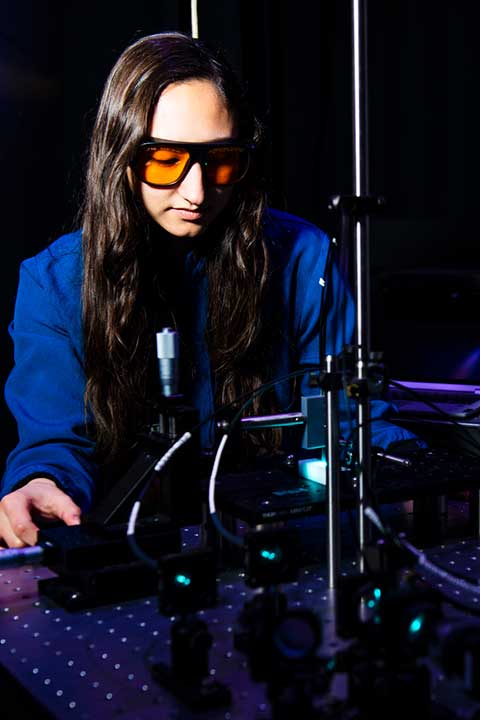
Bachelor of Science in Mechanical Engineering and Bioengineering
Bachelor of Science in Mechanical Engineering and Bioengineering
Overview
This combined major from the Department of Mechanical and Industrial Engineering and Department of Bioengineering provides a rigorous curriculum for students willing to learn and integrate the foundations of mechanical engineering and bioengineering toward solving multidisciplinary problems arising at the intersection of these two engineering disciplines. The combined major weaves mechanics, materials, and thermofluids courses of mechanical engineering with a set of core and elective bioengineering courses from biomechanics, biostatistics, signals, and systems, to biomaterials, biomedical imaging, and design of biomedical devices and implants.
Students have the option of selecting from several minors to complement their degree and personalize their path. Students can select from minors in the department, in other engineering departments, or from across the university.
The Accelerated Master’s Degree PlusOne program allows current undergraduate students to accelerate the attainment of the master’s degree by applying graduate credits taken as an undergraduate toward both the undergraduate and graduate degrees. Current students apply to enroll in the PlusOne program. Students attain their bachelor’s degree followed by a PlusOne year to complete the master’s degree.
Students currently earning a BS in Mechanical Engineering and Design can select from the PlusOne pathways available for BS in Mechanical Engineering students.
Experiential Learning
Experiential learning is the heart of a Northeastern education, combining rigorous coursework with hands-on experience in the classroom, in the lab, and in the field—locally and abroad. With our signature cooperative education (co-op) program, students typically gain six months of work experience integrated as part of the educational program. Both five-year, three-co-op and four-year, two-co-op program options are available.
More than 90 percent of department undergraduate students take advantage of the cooperative education program. Cooperative education assignments increase in responsibility and technical challenge as students progress through the program. Initial positions may involve computer-intensive CAD/CAM assignments or programming tasks, while more advanced jobs will place students in charge of design, quality-control systems, and performance testing of equipment.
Academic Advising
For support with academic questions, contact the academic advisor assigned to this program.
Admissions & Aid
Ready to take the next step? Review Degree Requirements to see courses needed to complete this degree. Then, explore ways to pay for your education. Finally, review Admissions Information to see our deadlines and gather the materials you need to Apply.
